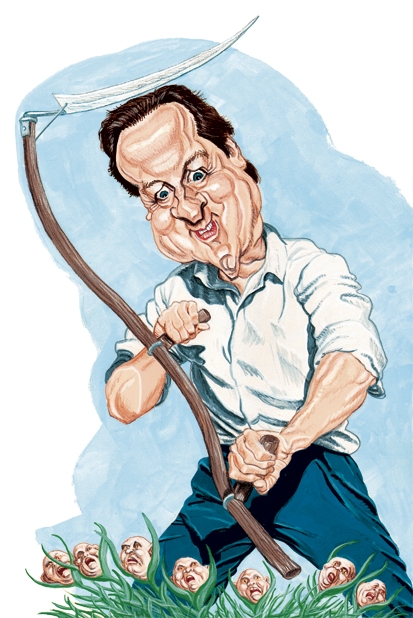One of the funnier moments of the election involved Ed Miliband assuming that a turban-wearing Sikh gentleman he met on the campaign trail would, naturally, be helping him get the Sikh vote out for Labour. In fact, the man was a Conservative parliamentary candidate. It seemed to exemplify the extent to which Labour assumed ethnic minorities would vote for them – but all that is changing.
New research from British Future shows that 1 million BME voters helped keep David Cameron in Number 10. This means that one in three minority ethnic voters supported the Tories, which is the party’s best result to date. I was brought up in a pro-Labour household, by Indian parents from Glasgow and East Africa, but I now lead the Watford Conservative council group at the age of 24, so I’ve been thinking about what’s changed in order to convince BME voters to back the Tories.
Firstly, patriarchal Asian culture is being eroded. Respect and direction remain paramount – but the freedom of individuals to make their own choices is increasingly accepted. It’s no longer taboo to disagree with your parents – I discovered my passion for politics during debates with my socialist, Glaswegian father. Young BMEs should challenge patriarchal practices where they remain and MPs need to stop pandering to so-called ‘community leaders’. Second or third generation immigrants are less influenced by their parents’ voting habits, and they don’t have the residual feelings from the 1970s and 1980s, when many automatically supported Labour for their important work championing anti-discrimination laws. Young voters now have a less tribal, more consumerist attitude to politics. We don’t take well to tokenistic ‘divide and rule’ politics like Harriet Harman’s pink van or Ed Miliband’s encounter with the Sikh candidate.
Social media has also allowed people to engage with clearer messages. The Conservatives had a positive, unifying One Nation message of economic prosperity that went beyond divisions and resonated across the wider electorate. There was a concerted attempt to share this message with the 1.6 million British Indians – we even had the UK’s first political Bollywood song that went down a storm with my older relations (although it was perhaps somewhat cringeworthy for the younger ones).
Personal goals for protecting your future have also led to more ethnic minorities voting Conservative, as British Asians traditionally put a high emphasis on education and home-ownership. ‘Education provides a solid skill, and bricks and mortar provide a solid asset,’ says my mother. The thought of mansion and inheritance taxes slicing into lifetime earnings didn’t sit well – my left-leaning aunt voted Tory primarily for this reason.
The rise of BME politicians has also helped the Conservatives achieve wider support. New Business Secretary Sajid Javid and Employment Minister Priti Patel – like me, a Watford Grammar alumna of East African Indian descent – got into cabinet on their own merits and without quotas. In Watford, groups like the Conservative Friends of India, Pakistan and Bangladesh, prove that the Tories are no longer just a ‘male, pale and stale’ party.
Last week’s Queen’s Speech saw policies that tapped into the heart of Asian concerns on immigration and reliance on the state. The vast majority of first generation immigrants didn’t claim from the state, but integrated, grafted, and often worked three jobs, like my grandmother did. Social justice is also key, with the caste system viewed with disgust by most British Indians. Any echoes of Enoch Powell now come predominantly from Ukip. David Cameron, conversely, was able to capture the centre-ground and make the Conservative message more relevant to ethnic minority voters than ever before. Above all, most BME voters are sensible, hardworking people, and the party with the best offer for them won.
Binita Mehta is Conservative Group Leader at Watford Borough Council. She tweets @BinitaMehta90






Comments